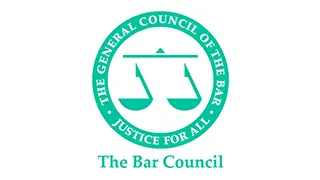About this course
Law is all around us, often governing our business, social and civil interactions. Studying this challenging and rewarding subject on our LLB Law degree will develop your analytical and problem-solving skills. Southampton Law School offers you expert tutors, a research-led curriculum and links to industry.
Our challenging and inspiring law programme will give you in-depth legal knowledge, together with strong critical thinking and communication skills.
Our unique employability skills programme will ensure you consolidate what you learn through exceptional work experience and networking opportunities.
All our undergraduate programmes lead to qualifying law degrees recognised by the Solicitors Regulation Authority and the Bar Standards Board.
As part of your Law LLB you can:
- experience law in action by applying to shadow a senior member of the judiciary in the High Court or Court of Appeal
- work alongside legal professionals to advise students at the Law Clinic
- engage with our academic research groups including the Stefan Cross Centre for Women, Equality and Law, and the Institute of Maritime Law
- hone your presentation skills on the Streetlaw programme
- study modules outside of law to broaden your knowledge
During your degree you can take part in a range of competitions to enhance your skills, including the Womble Bond Dickinson Team Building Challenge and regional, national and international mooting and negotiation competitions.
You can forge even stronger links within our friendly community by joining a student-run society. These include our Law Society, Inns of Court Society, Mooting Society, Lawyers without Borders and the Canadian Law Society.
League table rankings
Law at the University of Southampton is ranked 10th in the UK according to The Guardian University Guide 2026.
The University of Southampton Law School is sixth in the UK for Graduate Prospects according to the Times Good University Guide and among the Top 10 according to The Guardian University Guide 2026 and The Complete University Guide 2026.
We regularly review our courses to ensure and improve quality. This course may be revised as a result of this. Any revision will be balanced against the requirement that the student should receive the educational service expected. Find out why, when, and how we might make changes.
Our courses are regulated in England by the Office for Students (OfS).
Accreditations

In 2024 I was so proud to be among a group of students and academics invited to the Old Bailey in London. We received a Champions of Justice award from Amicus in recognition of the clinic’s work.

A law degree teaches you skills that go beyond a courtroom.
Course location
This course is based at Highfield.
Awarding body
This qualification is awarded by the University of Southampton.
Entry requirements
For Academic year 202627
A-levels
AAA. We require at least two A-level subjects that are typically assessed through written coursework and/or examinations. Only one subject with a primarily practical or performance-based focus will be considered as part of the standard offer.
A-levels additional information
Excluded subjects are; General Studies and Critical Thinking.
The below subjects are considered as primarily having a practical or performance-based focus. This means that we can accept one subject from the following list if combined with other academic subjects:
Dance, Drama and Theatre, Art and Design, Fine Art, Photography, Graphic Communication/Graphic Design, Film Studies, Design and Technology, Product Design, Fashion and Textiles, 3 D Design, Sculpture, Ceramics and Art, Craft and Design, Music and Music Technology.
If you have any queries about the subjects you are studying, please contact the Admissions Team before you make your application.
A-levels with Extended Project Qualification
If you are taking an EPQ in addition to 3 A levels, you will receive the following offer in addition to the standard A level offer: AAB with an A in the EPQ
A-levels contextual offer
We are committed to ensuring that all applicants with the potential to succeed, regardless of their background, are encouraged to apply to study with us. The additional information gained through contextual data allows us to recognise an applicant's potential to succeed in the context of their background and experience. Applicants who are highlighted in this way will be made an offer which is lower than the typical offer for that programme as follows: ABB. We require at least two A-level subjects that are typically assessed through written coursework and/or examinations. Only one subject with a primarily practical or performance-based focus will be considered as part of the standard offer.
International Baccalaureate Diploma
Pass, with 36 points overall with 18 points at Higher Level
International Baccalaureate Diploma additional information
As per our A level requirements, we can only accept one subject with a primarily practical or performance-based - please check the subjects listed under the A level section which also applies to all qualifications.
International Baccalaureate contextual offer
We are committed to ensuring that all learners with the potential to succeed, regardless of their background, are encouraged to apply to study with us. The additional information gained through contextual data allows us to recognise a learner’s potential to succeed in the context of their background and experience. Applicants who are highlighted in this way will be made an offer which is lower than the typical offer for that programme.
International Baccalaureate Career Programme (IBCP) statement
Offers will be made on the individual Diploma Course subject(s) and the career-related study qualification. The CP core will not form part of the offer. Where there is a subject pre-requisite(s), applicants will be required to study the subject(s) at Higher Level in the Diploma course subject and/or take a specified unit in the career-related study qualification. Applicants may also be asked to achieve a specific grade in those elements. Please see the University of Southampton International Baccalaureate Career-Related Programme (IBCP) Statement for further information. Applicants are advised to contact their Faculty Admissions Office for more information.
BTEC
RQF BTEC
D in the BTEC National Extended Certificate plus AA from two accepted A levels
DD in a BTEC National Diploma plus A from one accepted A-level
DDD in the Law or Applied Law BTEC National Extended Diploma
We are committed to ensuring that all learners with the potential to succeed, regardless of their background, are encouraged to apply to study with us. The additional information gained through contextual data allows us to recognise a learner’s potential to succeed in the context of their background and experience. Applicants who are highlighted in this way will be made an offer which is lower than the typical offer for that programme.
Additional information
For the BTEC Extended/National Extended Diploma we can accept Law or Applied Law
Other BTEC qualifications in the following subjects will be considered alongside accepted A levels or other academic qualification: Law, Criminology, Legal Services, Public Services, Business, Health and Social Care, Psychology, Sociology, Social Sciences, Politics and Media/Journalism.
Please contact us to check if your qualification or subject is accepted.
QCF BTEC
D in the BTEC National Extended Certificate plus AA from two accepted A levels
DD in a BTEC National Diploma plus A from one accepted A-level
DDD in the Law or Applied Law BTEC National Extended Diploma
BTEC contextual
We are committed to ensuring that all learners with the potential to succeed, regardless of their background, are encouraged to apply to study with us. The additional information gained through contextual data allows us to recognise a learner’s potential to succeed in the context of their background and experience. Applicants who are highlighted in this way will be made an offer which is lower than the typical offer for that programme.
Access to HE Diploma
60 credits with a minimum of 45 credits at Level 3, all of which must be at Distinction
Access to HE additional information
We welcome applications from returners to learning who are over 21 years of age at the start of your proposed degree programme. You may be required to undertake a test and interview to determine your academic suitability to pursue the programme.
Access Offer Contextual
We are committed to ensuring that all learners with the potential to succeed, regardless of their background, are encouraged to apply to study with us. The additional information gained through contextual data allows us to recognise a learner’s potential to succeed in the context of their background and experience. Applicants who are highlighted in this way will be made an offer which is lower than the typical offer for that programme.
Irish Leaving Certificate
Irish Leaving Certificate (first awarded 2017)
H1 H1 H2 H2 H2 H2
Irish certificate additional information
As per our A level requirements, we can only accept one subject with a primarily practical or performance-based - please check the subjects listed under the A level section which also applies to all qualifications.
Irish Offer Contextual
We are committed to ensuring that all learners with the potential to succeed, regardless of their background, are encouraged to apply to study with us. The additional information gained through contextual data allows us to recognise a learner’s potential to succeed in the context of their background and experience. Applicants who are highlighted in this way will be made an offer which is lower than the typical offer for that programme.
Scottish Qualification
Offers will be based on exams being taken at the end of S6. Subjects taken and qualifications achieved in S5 will be reviewed. Careful consideration will be given to an individual’s academic achievement, taking in to account the context and circumstances of their pre-university education.
Please see the University of Southampton’s Curriculum for Excellence Scotland Statement (PDF) for further information. Applicants are advised to contact their Faculty Admissions Office for more information.
Cambridge Pre-U
D3 D3 D3 in three Principal subject
Cambridge Pre-U additional information
Cambridge Pre-U's can be used in combination with other qualifications such as A Levels to achieve the equivalent of the typical offer but care must be taken with subjects when combining qualifications. As per our A level requirements, we can only accept one subject with a primarily practical or performance-based focus.
Cambridge Pre-U Offer Contextual
We are committed to ensuring that all learners with the potential to succeed, regardless of their background, are encouraged to apply to study with us. The additional information gained through contextual data allows us to recognise a learner’s potential to succeed in the context of their background and experience. Applicants who are highlighted in this way will be made an offer which is lower than the typical offer for that programme.
Welsh Baccalaureate
AAA from 3 A levels or AA from two A levels and A from the Advanced Skills Baccalaureate Wales
Welsh Baccalaureate additional information
As per our A level requirements, we can only accept one A level subject with a primarily practical or performance-based - please check the subjects listed under the A level section which also applies to all qualifications.
Welsh Baccalaureate contextual offer
We are committed to ensuring that all learners with the potential to succeed, regardless of their background, are encouraged to apply to study with us. The additional information gained through contextual data allows us to recognise a learner’s potential to succeed in the context of their background and experience. Applicants who are highlighted in this way will be made an offer which is lower than the typical offer for that programme.
T-Level
There are no T levels accepted for this programme.
Other requirements
GCSE requirements
Applicants must hold GCSE English language (or GCSE English) (minimum grade 4/C) and mathematics (minimum grade 4/C)
Find the equivalent international qualifications for our entry requirements.
English language requirements
If English is not your first language, you must show that you can use English to the level we require. Visit our English language pages to find out which qualifications we accept and how you can meet our requirements.
If you are taking the International English Language Testing System (IELTS), you must get at least the following scores:
IELTS score requirements
- overall score
- 6.5
- reading
- 6.5
- writing
- 6.5
- speaking
- 6.5
- listening
- 6.5
If you do not meet the English language requirements through a test or qualification, you may be able to meet them by completing one of our pre-sessional English programmes before your course starts.
You might meet our criteria in other ways if you do not have the qualifications we need. Find out more about:
- skills you might have gained through work or other life experiences (otherwise known as recognition of prior learning)
Find out more about our Admissions Policy.
Foundation programmes for international students
A foundation programme will give you the language skills and subject knowledge you need if you're not qualified for direct entry to your chosen undergraduate course.
You'll progress to your chosen course after successfully completing the foundation programme.
Find out more about undergraduate foundation programmes for international students.
Mature applicants
We welcome applications from learners of all ages. Students who are aged 21 and over at the start of their undergraduate course are defined as mature by the University of Southampton. We take a holistic assessment of the application looking for academic ability and commitment to study. Typical entry requirements, which may vary from discipline to discipline, includes for example, evidence of recent formal academic qualifications (taken in the last 3 years) or professional qualifications, relevant work experience or volunteering. You may also be invited to attend an interview with an Admissions Tutor. For some degree programmes, there may also be a Professional, Statutory and Regulatory Body (PSRB) requirement. We accept many different academic qualifications. For more information, please contact the Admissions Team.
Non-academic entry requirements
LNAT is not required for our programmes.
Got a question?
Please contact our enquiries team if you're not sure that you have the right experience or qualifications to get onto this course.
Email: enquiries@southampton.ac.uk
Tel: +44(0)23 8059 5000
Course structure
Your specialist law degree will include core and optional modules, allowing you to focus your learning. Your core modules are required to earn a qualifying law degree and to enable you to progress onto further professional training.
Our flexible programmes make it easy to study non-law subjects alongside your degree. Whether you have an interest in another subject or would simply like to extend your skills by learning a language, there are a wide range of options available.
Year 1 overview
You'll study the following core modules:
- Criminal Law
- Foundations of Contract Law
- Legal Skills
- Legal System and Reasoning
- Public Law: Foundations
You'll also choose 1 of these optional modules:
- Historical Development of the Common Law
- Philosophical Perspectives on the Common Law
These modules are designed to give you a deeper understanding of the contested nature of law and legal principle, develop your critical thinking skills, and help you to construct and communicate a persuasive argument.
Year 2 overview
Your 5 core modules are:
- Equity and Trusts
- Land Law
- Public Law: Administrative Justice
- Remedies in Contract and Tort
- The Law of Torts
You'll choose 2 modules from this broad list of options:
- Criminal Justice
- Employment Law
- Family Law: Children, Parents and the State
- Health Care Law and Bioethics
- Principles of Commercial Arbitration Law
- Introduction to Commercial and Maritime Law
- Foundations in Criminal Evidence Law
- Introduction to Public International Law
Year 3 overview
In your final core module, you'll use the research and writing skills you have developed to produce a 10,000-word dissertation on a topic of your choosing.
You'll select the rest of your modules from a list that includes possible career specialisms you might like to explore, including:
- International Human Rights Law
- Globalisation and Law
- International Criminal Law
- International Commercial Sales
- Constitutional Law of Canada
- Family Law: State Regulation of Adult Relationship Formation and Breakdown
You can also choose to study a module from outside of law, including Global Health, Business Skills for Employability, or a language.
Want more detail? See all the modules in the course.
Modules
The modules outlined provide examples of what you can expect to learn on this degree course based on recent academic teaching. As a research-led University, we undertake a continuous review of our course to ensure quality enhancement and to manage our resources. The precise modules available to you in future years may vary depending on staff availability and research interests, new topics of study, timetabling and student demand. Find out why, when and how we might make changes.
For entry in academic year 2026 to 2027
Year 1 modules
You must study the following modules in year 1:
Constitutional and Administrative Law
This module considers the foundational principles underpinning the UK constitutional settlement and law. You will study the historical development of the UK constitution and its unwritten character, the key constitutional principles underpinning constitut...
Contract Law
This module provides a concise yet comprehensive overview of the key salient issues of contract law, focusing on English contract law while drawing insights from comparative and transnational approaches. It comprises 3 parts. The first two parts cover ...
Criminal Law
This module provides an introduction to the substantive criminal law, and to fundamental aspects of criminal law in its broader criminal justice and societal context. It will examine the use of criminal law, and its associated processes, as a mode of gove...
Environment, Sustainability and International Law
In an interconnected world, global challenges such as climate change, biodiversity loss and pollution (the 'triple planetary crisis') require, inter alia, international co-operation. Such co-operation, including through the conclusion of international tre...
Legal System and Reasoning
Legal System and Reasoning is a predominantly skills-based introduction to studying the legal system of England and Wales, its institutions and practices, in the context of a more general understanding of law, legal theory and legal reasoning. It is desi...
Year 2 modules
You must study the following modules in year 2:
Equity and Trusts
Equity and Trusts examines the origin of equity, and the principles associated with equity and trusts. It assesses critically the application of those principles to factual circumstances; the manner in which these principles affect people in their everyda...
European Union (EU) Law and UK-EU relationship: Foundations
This module examines European Union (EU) law and the ongoing UK-EU relationship. The focus of the first part is upon the EU institutions and law-making power, and key principles of EU law. With this structural foundation in place attention turns to EU sub...
Land Law
Land Law investigates the private law rules affecting the ownership and use of land. It explains the principles governing the nature of property ownership and property rights, their formal and informal acquisition and priority incorporating the registrat...
Tort Law
You must also choose from the following modules in year 2:
Commercial and Consumer Law
Commercial and consumer law is a critical area of market regulation that has evolved significantly over the past decades, particularly with the rise of digital transactions and new financial instruments. This module concentrates on consumer law and credit...
Criminal Justice
What is the purpose of the criminal justice system? What is the appropriate role of the police? How have efforts to rehabilitate offenders changed over recent decades? How are political priorities re-shaping criminal justice? These are some of...
Employment Law
This module introduces students to three key themes of employment law: (1) employment status; (2) the contract of employment and (3) termination of employment. You will acquire a good understanding of the relevant law, you will also develop a critical ...
Family Law: Children, Parents and the State
Family law touches all of our lives at some point. This module considers the legal regulation of family life, in particular the extent to which relationships between parents and their children should be seen as a private matter free from State interferenc...
Foundations in Data Protection Law
Data, its use and its protection is of ever increasing critical importance in our interconnected world, a result of technological change, automated data processing and decision making and the digitisation of society. Our data can expose sensitive informat...
Introduction to Commercial Law
This course lays the foundation for further studies in commercial and maritime law by introducing you to advanced rules and applications of contract law. We will be exploring some key areas of commercial law, such as the law of agency and the sale of goo...
Introduction to Public International Law
The story of Public International Law is the story of historic and present-day efforts to address international issues of common concern - conflict within and between states, climate change, human rights abuses, international crimes, global trade, and con...
Youth Justice
Young people engage, and always have, in activity which is wrongful and harmful. How, as a liberal democratic society, should we respond to that behaviour? This is the central concern of this module. Through discussion of recent research, legislation and ...
Year 3 modules
You must choose your modules from the following modules in year 3:
Admiralty Law
Admiralty Law is an exciting course dealing with the laws applicable to shipping operations and the liabilities that may arise. Liabilities arising from shipping accidents, covering loss of life, damage to property, pollution as well as special liability ...
Advanced Public International Law
International law is about governments collaboratively as well as competitively trying to regulate world affairs. It includes issues as diverse as a government’s treatment of its citizens (international human rights law), the circumstances in which a stat...
Advanced Public Law
Public law is of the highest importance to individuals, defining the institutions which exercise the power of the state, and setting the rules which govern their interaction in relation to each other and to individuals. Though one of the defining chara...
Carriage of Goods by Sea
A shipowner will wish to use its ship to make as much profit as it can and will usually do so by chartering the ship either on a time charter or voyage charter basis. This course will consider the basic obligations which you would expect to find in any ch...
Commercial Conflict of Laws and International Litigation
In a globalised world dominated by international trade, the governance of commercial relationships and the disputes that arise from them, has become increasingly significant. The conflict of laws – also known as private international law – and civil proce...
Company Law
This course covers the material typically addressed in an undergraduate Company Law Course and addresses the framework of company law, the corporate entity, the corporate constitution, corporate governance issues including the directors' role, duties and ...
Constitutional Law of Canada
The Module provides a critical reflection on the development and state of constitutional law in Canada. We will reflect on the way constitutional law founded the transition from colony to constitutional state. Furthermore the module considers how, in con...
Crime in Law, Literature and Culture
This module examines crime and criminal law in its broader cultural and historical context. It focuses on the strategies and techniques that lawyers, judges and commentators use to persuade others to their viewpoint, and that give us the fascinating stori...
Environmental Justice and the Law
The module explores the concept of environmental justice and looks at the role of law in both aggravating and addressing environmental injustices. In an age of climate and biodiversity crises, the idea of environmental justice is at the heart of many of t...
Family Law: State Regulation of Adults' Relationship Formation and Breakdown
Family law touches all of our lives at some point. It covers the legal regulation of family life, including the extent to which family life should be seen as a private matter and to which different types of family are treated differently for example marit...
Globalisation and Law
'Globalisation' encapsulates the developing inter-connectedness of markets and economic systems, driven by trade liberalisation. Yet, alongside this drive towards trade liberalisation, the international community has committed itself to a diverse range o...
Insurance Contract Law
Insurance underpins much of economic activity, also has a significant social function. In this module, we will consider both the conceptual idea of channelling and allocating risks by insurance and technical commercial law issues within insurance contrac...
Intellectual Property Law
This module will allow you to explore some key areas of intellectual property law, such as trademarks, copyright and patents. Emphasis is placed on the process of European Union (EU) harmonisation of intellectual property rights, and its implications for ...
International Commercial Sales
This module covers international commercial sale contracts, principally CIF and FOB (which account for the vast majority of the world's tonnage internationally shipped), but also other international sales, in particular international commodity sales, and ...
International Human Rights Law
International human rights law is an essential part of international law. Human rights represent an important legal tool for empowering the most vulnerable and disadvantaged individuals and social groups, as well as promoting social, global and environmen...
Law and the Human Body
Law and the Human Body investigates legal and ethical problems at the intersection of medicine, biotechnology and the law, particularly the approach of law to questions arising from the biotechnological uses of cadavers, body parts and products of the bod...
Legal Research
Legal Research is an optional final module. Students will learn key legal research approaches, methods and techniques. The module will familiarise students with previously unexplored methodologies, including emerging theories of law, and give students pra...
Legal Research and Writing
The Legal Research and Writing course is a compulsory final year unit. It is examined through a 10,000 word dissertation on a topic of your choice. The module builds on the research skills you have developed during your degree programme and provides you w...
Miscarriages of Justice
The Miscarriages of Justice module focuses on specific problems concerning the delivery of justice in England and Wales. It examines aspects of the criminal justice system relating to the nature, extent and causes of miscarriages of justice, and connects ...
Renting Homes: Law and Policy
If you are interested in understanding the law that regulates the relationship between those who rent their homes and their landlord, then this half option is the course for you. The underlying theme is to consider the tension that exists in the landlord-...
Theories of Law and Justice
This module will provide you with a developed understanding of what is law; how much law can be justified; how law relates to morality and justice, indeed whether there is any morality that is unique to law. The first part of the module will canvass what...
Learning and assessment
The learning activities for this course include the following:
- lectures
- classes and tutorials
- coursework
- individual and group projects
- independent learning (studying on your own)
Course time
How you'll spend your course time:
Year 1
Study time
Your scheduled learning, teaching and independent study for year 1:
How we'll assess you
- essays
- individual and group projects
- oral presentations
- self-assessment
- written exams
Your assessment breakdown
Year 1:
Year 2
Study time
Your scheduled learning, teaching and independent study for year 2:
How we'll assess you
- essays
- individual and group projects
- oral presentations
- self-assessment
- written exams
Your assessment breakdown
Year 2:
Year 3
Study time
Your scheduled learning, teaching and independent study for year 3:
How we'll assess you
- essays
- individual and group projects
- oral presentations
- self-assessment
- written exams
Your assessment breakdown
Year 3:
Academic support
You’ll be supported by a personal academic tutor and have access to a senior tutor.
Course leader
Marc Johnson is the course leader.
Careers and employability
Employability skills
This degree will allow you to develop and evidence subject-specific and targeted employability skills. This includes the required skill set for a range of future careers, further study, or starting your own business.
The skills you can expect to focus on and gain from this course include:
- Research
- Critical thinking
- Self-management
- Communication
- Teamwork
- Problem solving
The employability and enterprise skills you'll gain from this course are reflected in the Southampton skills model. When you join us you'll be able to use our skills model to track, plan, and benefit your career development and progress.
Download skills overview
Career pathways
Graduates commonly work in a range of organisations or sectors including:
Administration,
Armed Forces legal services,
Banking,
Business,
Civil service,
Community and voluntary,
Crown Prosecution Service (CPS),
Education,
Finance,
High street solicitors' practices,
Health and safety,
HM Courts and Tribunal Service,
HMRC,
Large organisations with in-house legal teams,
local and national government,
Ministry of Justice,
Politics,
Self-employment.
- Arbitrator
- Barrister
- Barrister's clerk
- Chartered legal executive
- Company secretary
- Costs lawyer
- Licensed conveyancer
- Paralegal
- Solicitor
- Trademark attorney
- Border force officer
- Charity worker
- Local government officer
- Patent attorney
- Press officer
- Police officer
- Political research assistant
- Political risk analyst
- Publishing rights manager
- Trading standards officer
- Barrister
- Paralegal
- Trainee solicitor
- Police officer
- Business tax consultant
- Compliance analyst
- Data protection officer
- Financial crime analyst
- Lecturer
- Recruitment consultant
Job prospects for LL.B Bachelor of Laws (Honours) graduates
*Example graduate job titles and job prospect statistics taken from The Graduate Outcomes Survey, which gathers information about the activities and perspectives of graduates 15 months after finishing their course.

Year in employment
You can apply for a year in employment placement on this course. This is a great way to improve your employability and confidence in your career prospects. Recommended by 100% of students who've taken part, you can apply for a UK or global placement in any sector.
Careers services and support
We are a top 20 UK university for employability (QS Graduate Employability Rankings 2022). Our Careers, Employability and Student Enterprise team will support you. This support includes:
- work experience schemes
- CV and interview skills and workshops
- networking events
- careers fairs attended by top employers
- a wealth of volunteering opportunities
- study abroad and summer school opportunities
We have a vibrant entrepreneurship culture and our dedicated start-up supporter, Futureworlds, is open to every student.
Your career ideas and graduate job opportunities may change while you're at university. So it is important to take time to regularly reflect on your goals, speak to people in industry and seek advice and up-to-date information from Careers, Employability and Student Enterprise professionals at the University.
Fees, costs and funding
Tuition fees
Fees for a year's study:
- UK students pay £9,535.
- EU and international students pay £25,500.
What your fees pay for
Your tuition fees pay for the full cost of tuition and standard exams.
Find out how to:
Accommodation and living costs, such as travel and food, are not included in your tuition fees. There may also be extra costs for retake and professional exams.
Explore:
Bursaries, scholarships and other funding
If you're a UK or EU student and your household income is under £36,200 a year, you may be able to get a University of Southampton bursary to help with your living costs. Find out about bursaries and other funding we offer at Southampton.
If you're a care leaver or estranged from your parents, you may be able to get a specific bursary.
Get in touch for advice about student money matters.
Scholarships and grants
You may be able to get a scholarship or grant to help fund your studies.
We award scholarships and grants for travel, academic excellence, or to students from under-represented backgrounds.
Support during your course
The Student Hub offers support and advice on money to students. You may be able to access our Student Support fund and other sources of financial support during your course.
Funding for EU and international students
Find out about funding you could get as an international student.
How to apply
What happens after you apply?
We will assess your application on the strength of your:
- predicted grades
- academic achievements
- personal statement
- academic reference
We'll aim to process your application within 2 to 6 weeks, but this will depend on when it is submitted. Applications submitted in January, particularly near to the UCAS equal consideration deadline, might take substantially longer to be processed due to the high volume received at that time.
Equality and diversity
We treat and select everyone in line with our Equality and Diversity Statement.
Got a question?
Please contact our enquiries team if you're not sure that you have the right experience or qualifications to get onto this course.
Email: enquiries@southampton.ac.uk
Tel: +44(0)23 8059 5000
Related courses
Law (LLB) is a course in the Law subject area. Here are some other courses within this subject area:
-
Study
- View all courses
- Taught postgraduate study
- Pre-sessional English courses
-
Subjects
- Acoustical engineering
- Aeronautical and astronautical engineering
- Ageing and gerontology
- Archaeology
- Art, design and fashion
- Audiology
- Biological sciences
- Biomedical and medical engineering
- Business, accounting, finance and marketing
- Chemistry
- Civil engineering
- Computer science and software engineering
- Economics
- Education
- Electrical and electronic engineering
- English
- Film studies
- French
- Geography and environmental science
- History
- Languages and linguistics
- Law
- Maritime engineering
- Mathematical sciences
- Mechanical engineering
- Medicine
- Music
- Nursing, midwifery and healthcare
- Ocean and Earth science
- Philosophy
- Photonics and optoelectronics
- Physics and astronomy
- Politics and international relations
- Psychology
- Social statistics and demography
- Sociology, social policy and criminology
-
PhDs and research degrees
- Create your own research project
-
Find a PhD project
- A missing link between continental shelves and the deep sea: Have we underestimated the importance of land-detached canyons?
- A study of rolling contact fatigue in electric vehicles (EVs)
- Acoustic monitoring of forest exploitation to establish community perspectives of sustainable hunting
- Acoustic sensing and characterisation of soil organic matter
- Advancing intersectional geographies of diaspora-led development in times of multiple crises
- Aero engine fan wake turbulence – Simulation and wind tunnel experiments
- Against Climate Change (DACC): improving the estimates of forest fire smoke emissions
- All-in-one Mars in-situ resource utilisation (ISRU) system and life-supporting using non-thermal plasma
- An electromagnetic study of the continent-ocean transition southwest of the UK
- An investigation of the relationship between health, home and law in the context of poor and precarious housing, and complex and advanced illness
- Antibiotic resistance genes in chalk streams
- Being autistic in care: Understanding differences in care experiences including breakdowns in placements for autistic and non-autistic children
- Biogeochemical cycling in the critical coastal zone: Developing novel methods to make reliable measurements of geochemical fluxes in permeable sediments
- Bloom and bust: seasonal cycles of phytoplankton and carbon flux
- British Black Lives Matter: The emergence of a modern civil rights movement
- Building physics for low carbon comfort using artificial intelligence
- Business studies and management: accounting
- Business studies and management: banking and finance
- Business studies and management: decision analytics and risk
- Business studies and management: digital and data driven marketing
- Business studies and management: human resources (HR) management and organisational behaviour
- Business studies and management: strategy, innovation and entrepreneurship
- Carbon storage in reactive rock systems: determining the coupling of geo-chemo-mechanical processes in reactive transport
- Cascading hazards from the largest volcanic eruption in over a century: What happened when Hunga Tonga-Hunga Ha’apai erupted in January 2022?
- Characterisation of cast austenitic stainless steels using ultrasonic backscatter and artificial intelligence
- Climate Change effects on the developmental physiology of the small-spotted catshark
- Climate at the time of the Human settlement of the Eastern Pacific
- Collaborative privacy in data marketplaces
- Compatibility of climate and biodiversity targets under future land use change
- Cost of living in modern and fossil animals
- Creative clusters in rural, coastal and post-industrial towns
- Deep oceanic convection: the outsized role of small-scale processes
- Defect categories and their realisation in supersymmetric gauge theory
- Defining the Marine Fisheries-Energy-Environment Nexus: Learning from shocks to enhance natural resource resilience
- Design and fabrication of next generation optical fibres
- Developing a practical application of unmanned aerial vehicle technologies for conservation research and monitoring of endangered wildlife
- Development and evolution of animal biomineral skeletons
- Development of all-in-one in-situ resource utilisation system for crewed Mars exploration missions
- Ecological role of offshore artificial structures
- Effect of embankment and subgrade weathering on railway track performance
- Efficient ‘whole-life’ anchoring systems for offshore floating renewables
- Electrochemical sensing of the sea surface microlayer
- Engagement with nature among children from minority ethnic backgrounds
- Enhancing UAV manoeuvres and control using distributed sensor arrays
- Ensuring the Safety and Security of Autonomous Cyber-Physical Systems
- Environmental and genetic determinants of Brassica crop damage by the agricultural pest Diamondback moth
- Estimating marine mammal abundance and distribution from passive acoustic and biotelemetry data
- Evolution of symbiosis in a warmer world
- Examining evolutionary loss of calcification in coccolithophores
- Explainable AI (XAI) for health
- Explaining process, pattern and dynamics of marine predator hotspots in the Southern Ocean
- Exploring dynamics of natural capital in coastal barrier systems
- Exploring the mechanisms of microplastics incorporation and their influence on the functioning of coral holobionts
- Exploring the potential electrical activity of gut for healthcare and wellbeing
- Exploring the trans-local nature of cultural scene
- Facilitating forest restoration sustainability of tropical swidden agriculture
- Faulting, fluids and geohazards within subduction zone forearcs
- Faulting, magmatism and fluid flow during volcanic rifting in East Africa
- Fingerprinting environmental releases from nuclear facilities
- Flexible hybrid thermoelectric materials for wearable energy harvesting
- Floating hydrokinetic power converter
- Glacial sedimentology associated subglacial hydrology
- Green and sustainable Internet of Things
- How do antimicrobial peptides alter T cell cytokine production?
- How do calcifying marine organisms grow? Determining the role of non-classical precipitation processes in biogenic marine calcite formation
- How do neutrophils alter T cell metabolism?
- How well can we predict future changes in biodiversity using machine learning?
- Hydrant dynamics for acoustic leak detection in water pipes
- If ‘Black Lives Matter’, do ‘Asian Lives Matter’ too? Impact trajectories of organisation activism on wellbeing of ethnic minority communities
- Illuminating luciferin bioluminescence in dinoflagellates
- Imaging quantum materials with an XFEL
- Impact of neuromodulating drugs on gut microbiome homeostasis
- Impact of pharmaceuticals in the marine environment in a changing world
- Improving subsea navigation using environment observations for long term autonomy
- Information theoretic methods for sensor management
- Installation effect on the noise of small high speed fans
- Integrated earth observation mapping change land sea
- Interconnections of past greenhouse climates
- Investigating IgG cell depletion mechanisms
- Is ocean mixing upside down? How mixing processes drive upwelling in a deep-ocean basin
- Landing gear aerodynamics and aeroacoustics
- Lightweight gas storage: real-world strategies for the hydrogen economy
- Machine learning for multi-robot perception
- Machine learning for multi-robot perception
- Marine ecosystem responses to past climate change and its oceanographic impacts
- Mechanical effects in the surf zone - in situ electrochemical sensing
- Microfluidic cell isolation systems for sepsis
- Migrant entrepreneurship, gender and generation: context and family dynamics in small town Britain
- Miniaturisation in fishes: evolutionary and ecological perspectives
- Modelling high-power fibre laser and amplifier stability
- Modelling soil dewatering and recharge for cost-effective and climate resilient infrastructure
- Modelling the evolution of adaptive responses to climate change across spatial landscapes
- Nanomaterials sensors for biomedicine and/or the environment
- New high-resolution observations of ocean surface current and winds from innovative airborne and satellite measurements
- New perspectives on ocean photosynthesis
- Novel methods of detecting carbon cycling pathways in lakes and their impact on ecosystem change
- Novel technologies for cyber-physical security
- Novel transparent conducting films with unusual optoelectronic properties
- Novel wavelength fibre lasers for industrial applications
- Ocean circulation and the Southern Ocean carbon sink
- Ocean influence on recent climate extremes
- Ocean methane sensing using novel surface plasmon resonance technology
- Ocean physics and ecology: can robots disentangle the mix?
- Ocean-based Carbon Dioxide Removal: Assessing the utility of coastal enhanced weathering
- Offshore renewable energy (ORE) foundations on rock seabeds: advancing design through analogue testing and modelling
- Optical fibre sensing for acoustic leak detection in buried pipelines
- Optimal energy transfer in nonlinear systems
- Optimal energy transfer in nonlinear systems
- Optimizing machine learning for embedded systems
- Oxidation of fossil organic matter as a source of atmospheric CO2
- Partnership dissolution and re-formation in later life among individuals from minority ethnic communities in the UK
- Personalized multimodal human-robot interactions
- Preventing disease by enhancing the cleaning power of domestic water taps using sound
- Quantifying riparian vegetation dynamics and flow interactions for Nature Based Solutions using novel environmental sensing techniques
- Quantifying the response and sensitivity of tropical forest carbon sinks to various drivers
- Quantifying variability in phytoplankton electron requirements for carbon fixation
- Resilient and sustainable steel-framed building structures
- Resolving Antarctic meltwater events in Southern Ocean marine sediments and exploring their significance using climate models
- Robust acoustic leak detection in water pipes using contact sound guides
- Silicon synapses for artificial intelligence hardware
- Smart photon delivery via reconfigurable optical fibres
- The Gulf Stream control of the North Atlantic carbon sink
- The Mayflower Studentship: a prestigious fully funded PhD studentship in bioscience
- The calming effect of group living in social fishes
- The duration of ridge flank hydrothermal exchange and its role in global biogeochemical cycles
- The evolution of symmetry in echinoderms
- The impact of early life stress on neuronal enhancer function
- The oceanic fingerprints on changing monsoons over South and Southeast Asia
- The role of iron in nitrogen fixation and photosynthesis in changing polar oceans
- The role of singlet oxygen signaling in plant responses to heat and drought stress
- Time variability on turbulent mixing of heat around melting ice in the West Antarctic
- Triggers and Feedbacks of Climate Tipping Points
- Uncovering the drivers of non-alcoholic fatty liver disease progression using patient derived organoids
- Understanding recent land-use change in Snowdonia to plan a sustainable future for uplands: integrating palaeoecology and conservation practice
- Understanding the role of cell motility in resource acquisition by marine phytoplankton
- Understanding the structure and engagement of personal networks that support older people with complex care needs in marginalised communities and their ability to adapt to increasingly ‘digitalised’ health and social care
- Unpicking the Anthropocene in the Hawaiian Archipelago
- Unraveling oceanic multi-element cycles using single cell ionomics
- Unravelling southwest Indian Ocean biological productivity and physics: a machine learning approach
- Using acoustics to monitor how small cracks develop into bursts in pipelines
- Using machine learning to improve predictions of ocean carbon storage by marine life
- Vulnerability of low-lying coastal transportation networks to natural hazards
- X-ray imaging and property characterisation of porous materials
- Funding your research degree
- How to apply for a PhD or research degree
- How to make a PhD enquiry
- Support while studying your PhD or research degree
- Exchanges and studying abroad
- Undergraduate study
-
Tuition fees, funding and scholarships
- Fee status
- Scholarships
- Undergraduate funding options
-
Postgraduate funding options
-
Postgraduate scholarships
- Black Futures Postgraduate Research Scholarships (Environmental and Life Sciences)
- Black Futures scholarship
- China Excellence Scholarship
- GREAT Scholarships 2025 – Egypt
- GREAT Scholarships 2025 – France
- GREAT Scholarships 2025 – Ghana
- Horizon Europe fee waiver
- India Excellence Scholarship
- Nigeria Excellence Scholarship
- Nursing Global Impact Scholarship
- Postgraduate Taught Diversity Scholarship (Environmental and Life Sciences)
- Social Impact Scholarships
- Southampton Business School (MSc) Dean Scholarship (UK)
- Southampton Faculty of Medicine PGT Talent Scholarship
- Southampton History Patricia Mather and Helen Patterson Scholarship
- Southampton MA Holocaust scholarships
- Southampton Philosophy David Humphris-Norman Scholarship
- Southampton Philosophy MA Scholarship
- Southampton Photonics Impact Scholarship
- Southampton UK Alumni Music Scholarship
- Study in Art and Media Technology Scholarship
- Thailand Excellence Scholarship
- The National Institute for Health and care Research South Central INSIGHT Programme
- The South Coast Doctoral Training Partnership Social Science PhD Studentships
- Vietnam Excellence Scholarship
- Spärck AI Scholarship
-
Postgraduate scholarships
-
International funding options
-
Scholarships for international students
- Engineering Global Talent Scholarship
- Higher Education Scholarships for Palestinians - HESPAL
- Medical Technology, Innovation and Design Master’s Scholarship
- Merit scholarships for international undergraduates
- Presidential bursaries
- Winchester School of Art Postgraduate Global Talent Scholarship
- Becas Chile Scholarship
- Chevening Scholarships
- China Scholarship Council Scholarships
- COLFUTURO Scholarships
- Commonwealth Distance Learning Scholarships
- Commonwealth Master's Scholarships
- Commonwealth PhD Scholarships
- Commonwealth PhD Scholarships for high income countries
- Commonwealth Shared Scholarships
- Excellence Scholarship
- FIDERH Scholarships
- Southampton Education Civic Scholarship
- Fulbright Awards
- Southampton Ageing and Gerontology Talent Scholarship
- Southampton Teachers' Postgraduate Scholarship
- FUNED Scholarships
- Great Scholarships 2024 – Mexico
- Great Scholarships 2024 – Nigeria
- Marshall Scholarship
- Saïd Foundation Scholarships
- Southampton Canadian Prestige Scholarship for Law
- Xiamen University PhD Scholarships
- GREAT scholarships 2026 – Indonesia
-
Scholarships for international students
- External funding opportunities
- Short courses
- Lunchtime evening and weekend courses
- Clearing
- Summer schools
- Get a prospectus
- Student life
-
Research
- Our impact
- Research projects
- Research areas
- Research facilities
- Collaborate with us
-
Institutes, centres and groups
- Active Living
- Advanced Fibre Applications
- Advanced Laser Laboratory
- Advanced Project Management Research Centre
- Antibody and Vaccine Group
- Astronomy Group
- Autism Community Research Network @ Southampton (ACoRNS)
- Bioarchaeology and Osteoarchaeology at Southampton (BOS)
- Bladder and Bowel Management
- Cell and Developmental Biology
- Centre for Defence and Security Research
- Centre for Developmental Origins of Health and Disease
- Centre for Digital Finance
- Centre for Eastern European and Eurasian Studies (CEEES)
- Centre for Empirical Research in Finance and Banking (CERFIB)
- Centre for Geometry, Topology, and Applications
- Centre for Global Health and Policy (GHaP)
- Centre for Green Maritime Innovation (cGMI)
- Centre for Health Technologies
- Centre for Healthcare Analytics
- Centre for Human Development, Stem Cells and Regeneration
- Centre for Imperial and Postcolonial Studies
- Centre for Inclusive and Sustainable Entrepreneurship and Innovation (CISEI)
- Centre for International Film Research (CIFR)
- Centre for International Law and Globalisation
- Centre for Internet of Things and Pervasive Systems
- Centre for Justice Studies
- Centre for Linguistics, Language Education and Acquisition Research
- Centre for Machine Intelligence
- Centre for Maritime Archaeology
- Centre for Medieval and Renaissance Culture (CMRC)
- Centre for Political Ethnography (CPE)
- Centre for Research in Accounting, Accountability and Governance
- Centre for Research on Work and Organisations
- Centre for Resilient Socio-Technical Systems
- Centre for Transnational Studies
- Child and Adolescent Research Group
- Clinical Ethics, Law and Society (CELS)
- Clinical Legal Education
- Computational Nonlinear Optics
- Cyber Security Academy
- Data Science Group
- Digital Oceans
- EPSRC and MOD Centre for Doctoral Training in Complex Integrated Systems for Defence and Security
- Economic Theory and Experimental Economics
- Economy, Society and Governance
- Electrical Power Engineering
- Environmental Hydraulics
- Gas Photonics in Hollow Core Fibres
- Geochemistry
- Global Health (Demography)
- Global Health Community of Practice
- Gravity group
- High Power Fibre Lasers
- Hollow Core Fibre
- Human Genetics and Genomic Medicine
- Infection
- Infrastructure Group
- Institute of Developmental Sciences
- Institute of Maritime Law (IML)
- Integrated Photonic Devices
- Interdisciplinary Musculoskeletal Health
- International Centre for Ecohydraulics Research (ICER)
- Language Assessment and Testing Unit (LATU)
- Laser-Direct-Write (LDW) Technologies for Biomedical Applications
- Law and Technology Centre
- Long Term Conditions
- Magnetic Resonance
- Mathematical Modelling
- Medicines Management
- Molecular and Precision Biosciences
- Multiwavelength Accretion and Astronomical Transients
- National Biofilms Innovation Centre (NBIC)
- National Centre for Research Methods
- National Infrastructure Laboratory
- Nature-Based Ocean Solutions
- Nonlinear Semiconductor Photonics
- Ocean Perception Group
- Operational Research
- Optical Engineering and Quantum Photonics Group
- Paediatrics and Child Health - Clinical and Experimental Sciences
- People, Property, Community
- Photonic Systems, Circuits and Sensors Group
- Physical Optics
- Primary Care Research Centre
- Quantum, Light and Matter Group
- Silica Fibre Fabrication
- Silicon Photonics
- Skin Sensing Research Group
- Southampton Ethics Centre
- Southampton Health Technology Assessments Centre (SHTAC)
- Southampton High Energy Physics group
- Southampton Imaging
- Southampton Theory Astrophysics and Gravity (STAG) Research Centre
- Stefan Cross Centre for Women, Equality and Law
- String theory and holography
- The India Centre for Inclusive Growth and Sustainable Development
- The Parkes Institute
- Tony Davies High Voltage Laboratory
- Ultrafast X-ray Group
- Vision Science
- WSA Exchange
- Work Futures Research Centre (WFRC)
- Support for researchers
- Faculties, schools and departments
- Interdisciplinary research
- Find people and expertise
- Research jobs
- Business
- Global
- About
- Visit
- Alumni
- Departments
- News
- Events
- Contact










